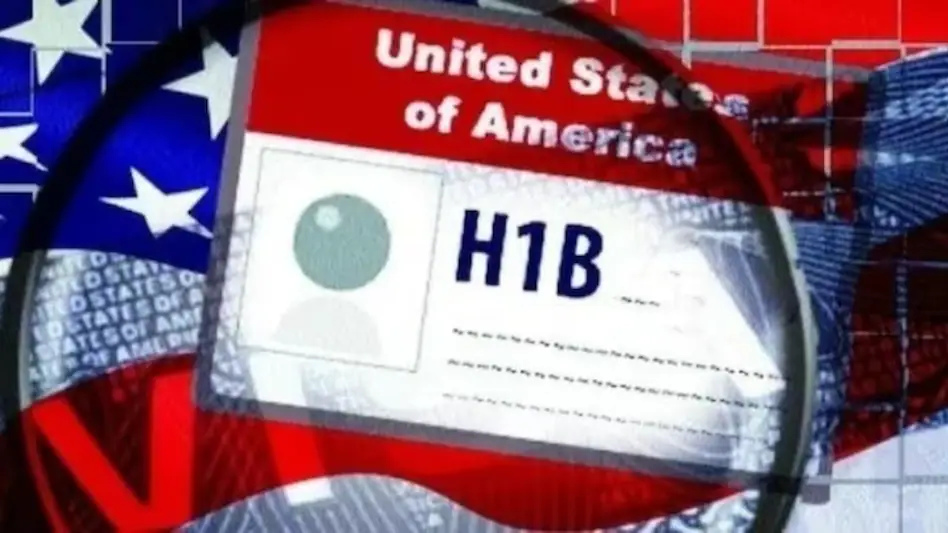Neela Rajendra, an Indian-origin top official at Nasa who led the space agency’s diversity programmes, has been sacked after US President Donald Trump ordered the end of all federal Diversity, Equity, and Inclusion (DEI) initiatives. The move came even as Nasa tried to shield her from Trump’s order by changing her designation.
According to the Washington Free Beacon, the lab informed staff of Rajendra’s exit last week. JPL Director Laurie Leshin wrote in an email, “Neela Rajendra is no longer working at (Jet Propulsion Laboratory). We are incredibly grateful for the lasting impact she made to our organisation. We wish her the very best.”
In March, Nasa officially closed its DEI office, but at the same time, gave Rajendra a new role with similar responsibilities. Rajendra, who had been serving as the Chief Diversity, Equity and Inclusion Officer at Nasa’s Jet Propulsion Laboratory (JPL), was given a new role as head of the ‘Office of Team Excellence and Employee Success,’ where she led employee groups like the ‘Black Excellence Strategic Team.’
However, she has now been removed from that position as well.
Who is Indian-origin Neela Rajendra?
Neela Rajendra holds an MBA from Wake Forest University School of Business and a Bachelor’s degree in Political Science and Music from the University of North Carolina at Chapel Hill.
Rajendra is a leadership and inclusion strategist with over 15 years of experience in advancing equity, employee development, and organisational transformation. Until recently, she served as the Chief Team Excellence & Employee Success Officer at Nasa’s Jet Propulsion Laboratory.
Prior to this, Rajendra was JPL’s Chief Diversity, Equity, and Inclusion Officer, leading Nasa’s efforts to build a more inclusive aerospace workforce. She played a key role in national initiatives like the Space Workforce 2030 pledge, aimed at increasing representation of women and minorities in STEM fields.
Before joining Nasa, Rajendra co-founded and led the Science of Diversity and Inclusion Initiative in Chicago, where she served in various roles including Executive Director and Design Director. She also held leadership roles at Claremont McKenna College’s Kravis Leadership Institute, Ashoka, The Advisory Board Company, and nxtMOVE.
Rajendra also led efforts like Nasa’s “Space Workforce 2030” pledge, which aimed to increase the hiring of women and minorities in the space field. She was one of the few DEI officials who kept their job last year when Nasa cut nearly 900 DEI-related roles due to budget problems.
Why is Trump against DEI?
In January 2025, Trump signed an executive order, dismantling DEI initiatives in the federal government. The order stated that such initiatives had “divided Americans on the basis of race, colour, and gender; have wasted taxpayer dollars, and resulted in shameful discrimination.”
The order revoked previous directives mandating non-discrimination and affirmative action among federal contractors, and required all federal agencies to eliminate DEI-related roles, training, and contracts. It also mandated a return to merit-based hiring and promotion, arguing that DEI policies encouraged preferential treatment and undermined equal opportunity.
Workforce reduction and buyouts
According to Reuters, the Trump administration has implemented buyout programmes to encourage federal employees to leave voluntarily. In January, over 75,000 of the 2.3 million civilian federal workers accepted buyouts, and a second offer has been extended, allowing employees to remain on paid leave until September 30. These measures aim to reduce the federal workforce by more than 200,000 employees.
Reclassification of federal employees
A report by the Guardian says that Trump also had signed an executive order that reclassified thousands of federal employees as ‘Schedule F,’ a designation that removes civil service protections and makes it easier to terminate them.
The administration has proposed eliminating funding for various federal programmes to achieve cost savings. A plan sent to Congress includes cutting all federal funding for National Public Radio (NPR) and the Public Broadcasting Service (PBS), as well as reducing $8.3 billion in foreign aid through the US Agency for International Development (USAID), according to a report by the New York Post.
These cuts are part of a broader initiative to reduce federal spending by $1 trillion annually.






















